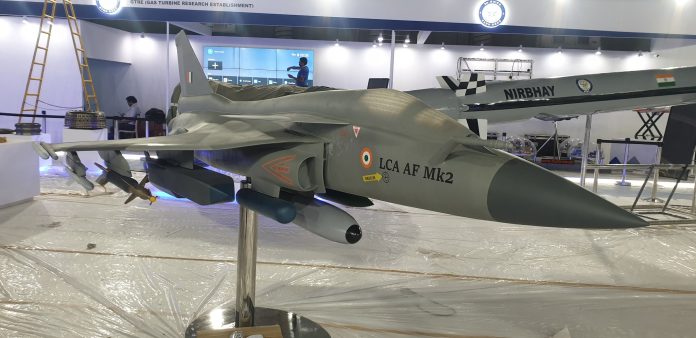By Staff Correspondent
Washington is expected to grant approval for the production of General Electric’s F-414 jet engine for India’s advanced Tejas MK-II fighter jet, just in time for Prime Minister Narendra Modi’s upcoming visit to the United States. The White House recently announced that the visit, scheduled for June 22, 2023, will include a state dinner, marking PM Modi’s first visit to the US during the Biden Administration.
During the visit, both countries will hold the ‘Strategic Trade Dialogue’ inaugural session on June 4 and 5. This dialogue aims to accelerate the outcomes outlined in the Initiative on Critical and Emerging Technologies (iCET) agreement, signed by Indian and US National Security Advisors on January 31. The decision to establish this dialogue was made during the visit of US Commerce Secretary Gina Raimondo to India on March 10.
The Indian Foreign Secretary Vinay Kwatra is expected to engage in discussions with Alan Estevez, the US Under-Secretary of Commerce for Industry and Security, as part of the dialogue. One of the main deliberation topics will be removing hurdles posed by International Traffic in Arms Regulations (ITAR) and Export Administration Regulations (EAR). Simplifying these regulations will facilitate joint production ventures between US and Indian companies, allowing collaboration in manufacturing advanced military equipment such as jet engines, munitions, and drones.
As part of the iCET agreement, General Electric is also working towards shifting its F-414 engine manufacturing operations from the European Union to India. The GE F-414, a low-bypass turbofan engine known for its maximum thrust of 98 KN, has been selected by Hindustan Aeronautics Limited (HAL) to power the next-generation Tejas MK-II fighter jet. The Tejas MK-II is expected to be larger, heavier, faster, and technologically more advanced than its predecessor, the LCA Tejas MK-1A.
In addition to the GE jet engines, India is collaborating with the US to establish resilient semiconductor supply chains. Furthermore, both countries are exploring developing advanced intelligence, surveillance, and reconnaissance (ISR) technologies to enhance maritime domain awareness in the Indo-Pacific region. India has already leased two MQ-9 Sea Guardian drones from the US as part of this initiative.
The anticipated approval for GE’s F-414 engine production and the discussions on strategic trade marks significant progress in the defence and technological cooperation between the US and India, strengthening their partnership in the Indo-Pacific region.





